WANTED: A WORLD FOR ONE BILLION
REQUIRED: a home, work and social environment available 24/7 for anyone with a physical, sensory, psychosocial or intellectual disability. Must be able to accommodate 1 in 5 women, 180 million young people, and 46% of all people over the age of 60.
Ideal attributes include acceptance, respect and empathy. Transportation, education and health services must be included. Must ensure the participation and leadership of persons with disabilities, and be willing to change infrastructure, government policies and attitudes to meet the rights of 15% of the world’s population – and support everyone’s right to decide about their own life, future, body and health. Proposals ACCEPTED IMMEDIATELY.
“Wanted: A World for One Billion” is a multi-sensory exhibit of photographs, audio recordings, and immersive films bringing us around the world to Ecuador, Morocco and Mozambique into the lives of those who live beyond their limits and disabilities and ignite change for themselves and for future generations. The objective of the exhibition is to build momentum and awareness around the sexual and reproductive health and rights and bodily autonomy of women and young persons with disabilities, highlight the voices and experiences of persons with disabilities, and promote their meaningful participation and access to sexual and reproductive health and gender based violence services.
Equality
“Being a woman is not easy, but it is not difficult either. To be a woman is to be everything: a friend, a partner, a mother, a teacher – everything. It is not easy, but it is not difficult. Everyone who is a human being needs another human being. A man is not a man without another man. So it does not matter what skin colour or race, it does not matter what sex someone is. No matter what nationality you are, we are all equal. The blood that runs in our veins is the same. And every human being makes mistakes, and has to be forgiven. I know I am human if I need support from others.”
— Bastina
Photo/Mbuto Carlos Machili
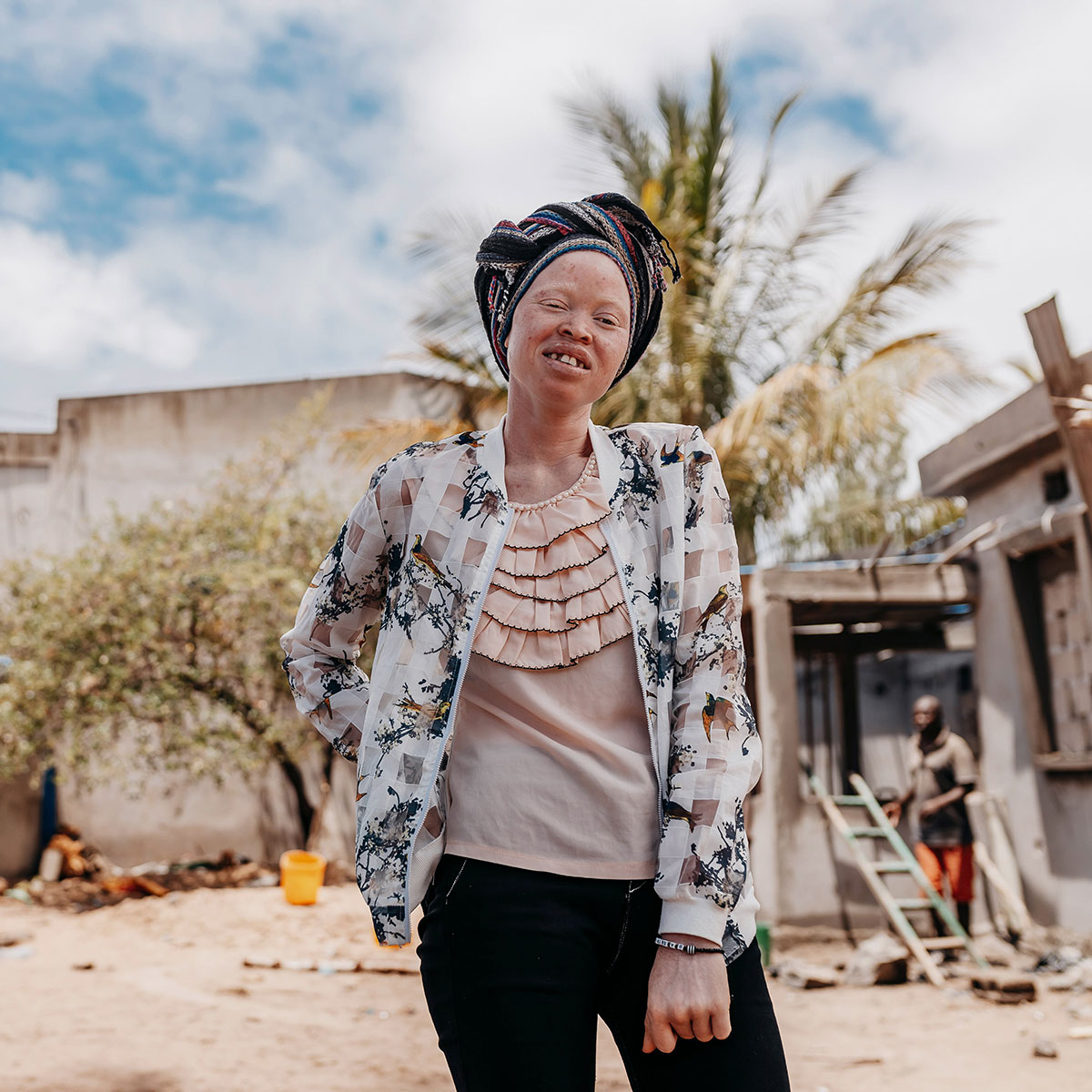
Did you know?
1 in 5 women is a woman with a disability
Rise
“I find a lot of information on YouTube about recipes, and I read recipe books little by little. I do all of that by myself. The people who work with me help me; they peel vegetables for me, and I cook slowly.”
— Lobna
Photo/Lauren Anders Brown
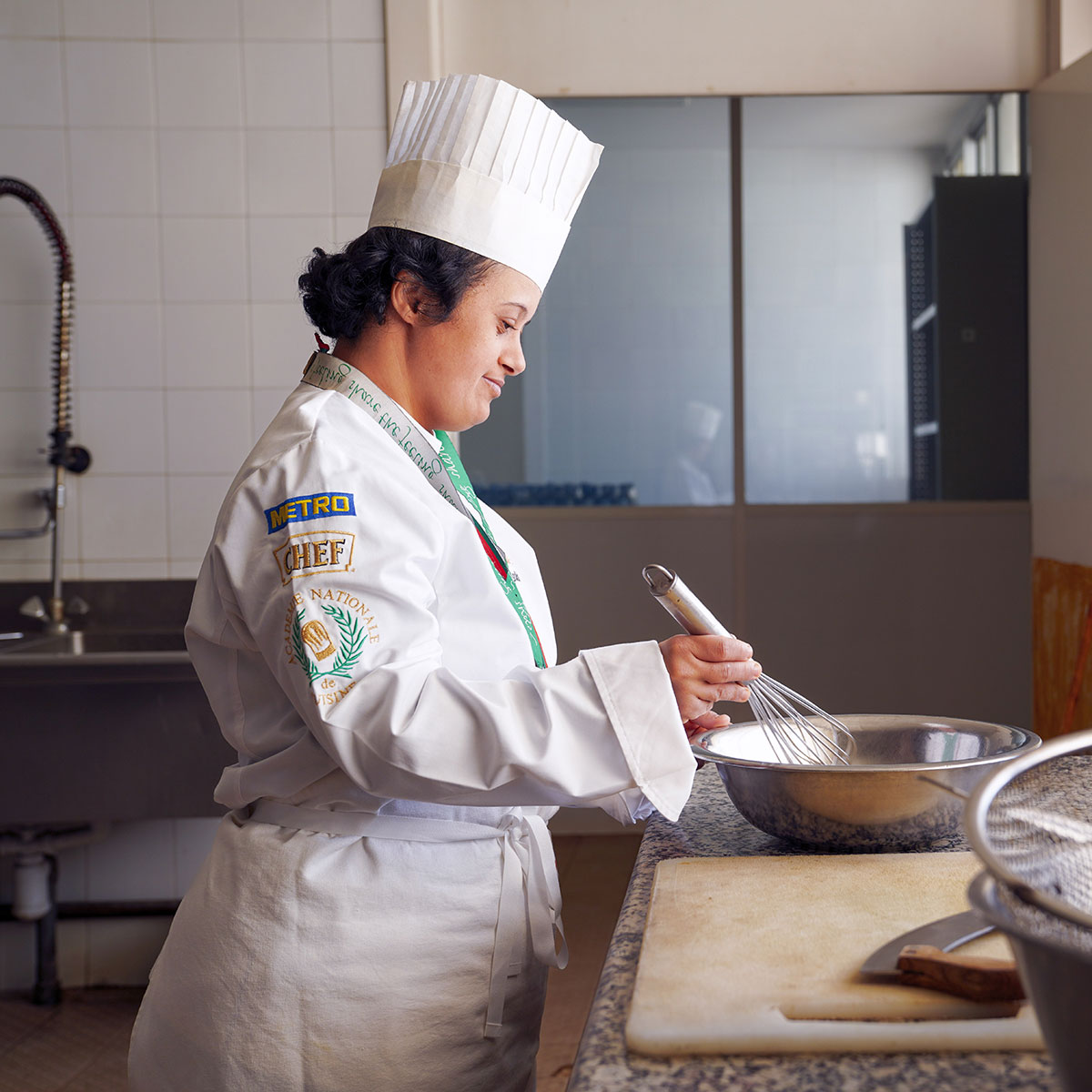
Independence
“I was born visually impaired from a premature birth. From the very beginning, my parents supported me, showing me that having a disability is not an obstacle to moving forward. Currently, I am studying and working. I have a role at work as an assistant. I am proud to be an assistant, and as far as I am aware, I am the best assistant here. I have importance and responsibilities, and for my work colleagues and friends, having a visual impairment is not bad or minimizing.”
— Alex
Photo/Lauren Anders Brown
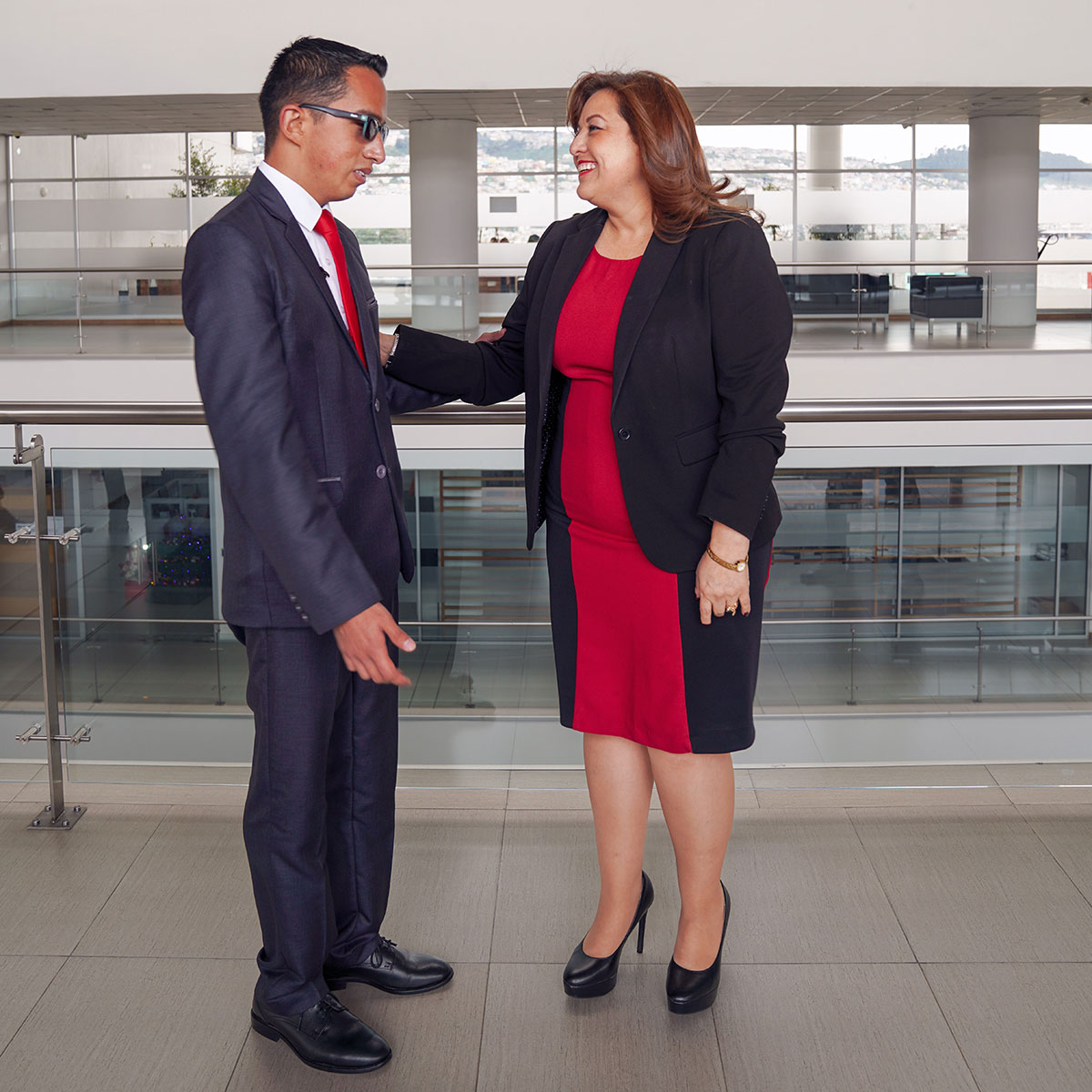
Did you know?
The participation of persons with disabilities, including women and young people, is indispensable to creating inclusive and accessible policies, programmes and practices
Not part of the show
“The makeup is not part of the show. What I do with activism is I paint my lips red, put on makeup, dress up – because as we discussed it with a group of women from South America, we assume women with disabilities do not dress up, are not sexy, do not attract attention. But actually they do. I have actually met very pretty women with disabilities. They are very empowered. They dress up for themselves, and not for others. But all of this is activism. It goes beyond talking and saying how things are. I have to change that perspective. I have to change the way others look at me, so that other people can also change their perceptions.”
— Irene
Photo/Lauren Anders Brown
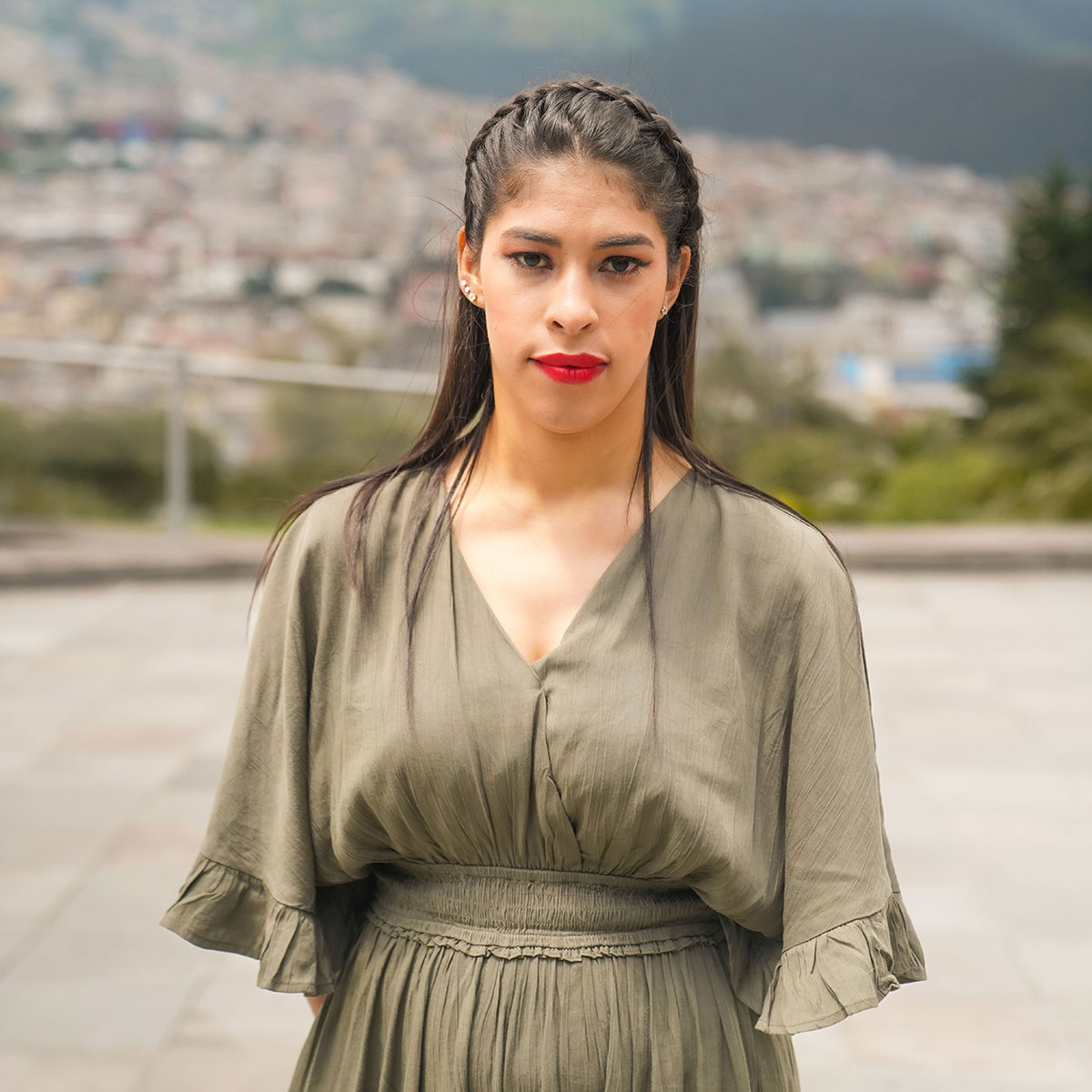
Did you know?
Many persons with disabilities face human rights violations as a result of systemic discrimination and barriers
Community
“My boyfriend supports me. My mother supports me. They give me attention. They give me affection and understand me.”
— Marilia
Photo/Mbuto Carlos Machili
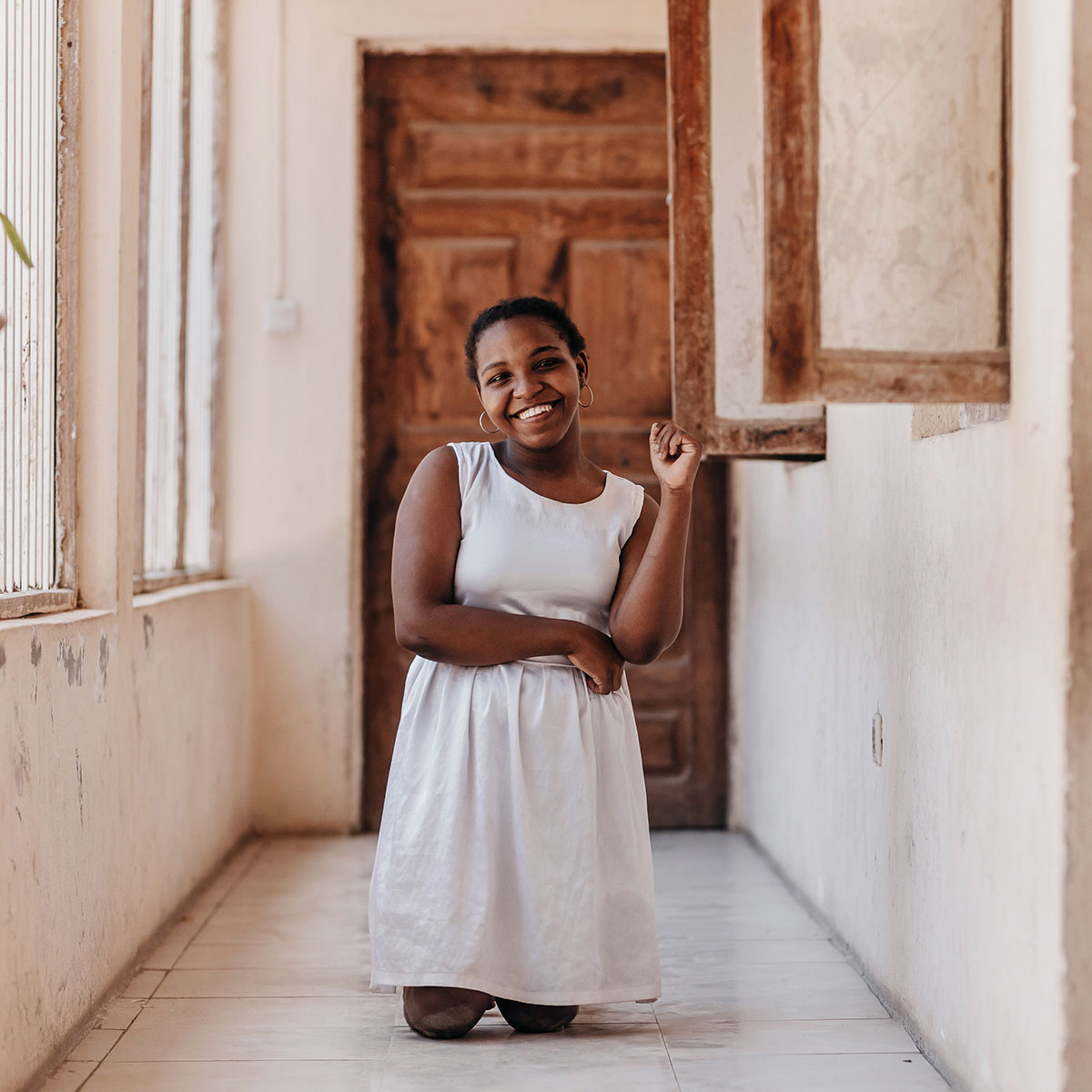
Did you know?
Women and girls with disabilities are at high risk of gender-based violence
Solace
“What gives me solace is the humane aspect of society. If you want to sit in a cafe, people will help you. Even if one may think these values are lost, reality shows otherwise. It is not the person who has a disability, it is the environment that is disabled.”
— Ahmed
Photo/Lauren Anders Brown
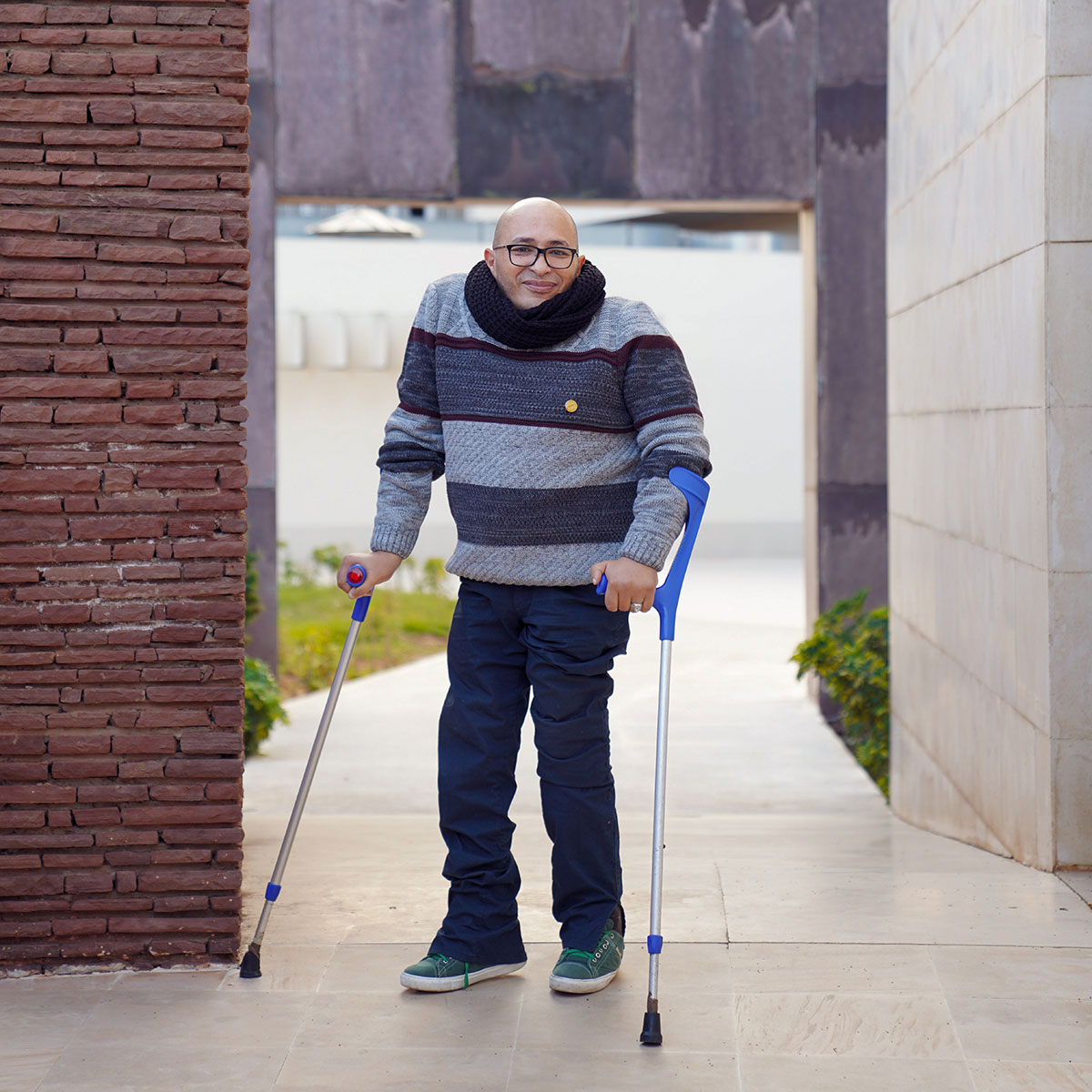
Independence
“There are some things that are hard, like waiting for others – because I need them, but they need to work at the same time, and so cannot be with me. I have to wait until that person can meet me. By the time the person arrives, the moment has passed, and the event is over.”
— Anchita
Photo/Mbuto Carlos Machili
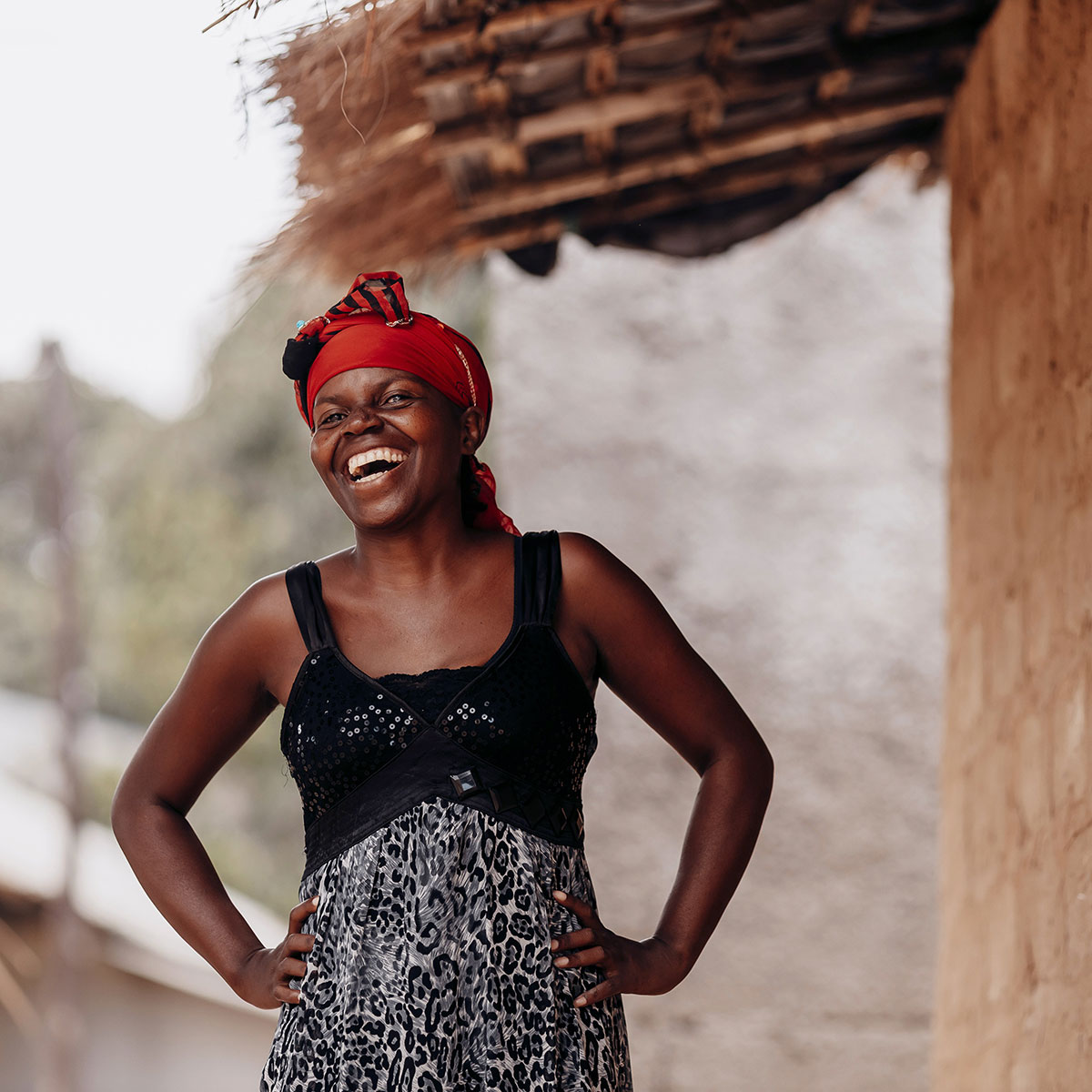
Did you know?
It is necessary to work toward removing barriers so that everyone can participate equally in society and access the services, resources and opportunities they need to flourish
Autonomy
“These decisions are mine. Simply put, I am a man, and I have to decide when I will have a family and get married, because I want a family of my own. Really, though, right now I am not ready to have a baby. I am still single, I don’t have a girlfriend and I am not in the right state of mind to have my own child. My reasons: I understand that my body is physically mine. I explain to others that, from my perspective, I make decisions about my body, and at least I feel content with that. Because this affects everyone, men or women – that question about bodily autonomy and what it means to us. We have to learn a bit more, understand more about the people and their future possibilities.”
— José Miguel
Photo/Lauren Anders Brown

Confidence
“For me, nothing is impossible. I participate in several athletic disciplines. I like to try different disciplines to tell myself I am capable of doing them. Why wouldn’t I be? What makes me proud is that my country, Morocco, is proud of me and that I raised the national flag in Tokyo. It is an incredible feeling to be among the three best in the world. From the bottom of my heart, what makes my day is when someone is struggling on the streets and I am able to go and help them – then they say, ‘A champion helped me’. It makes me happy.”
— Hayat
Photo/Lauren Anders Brown
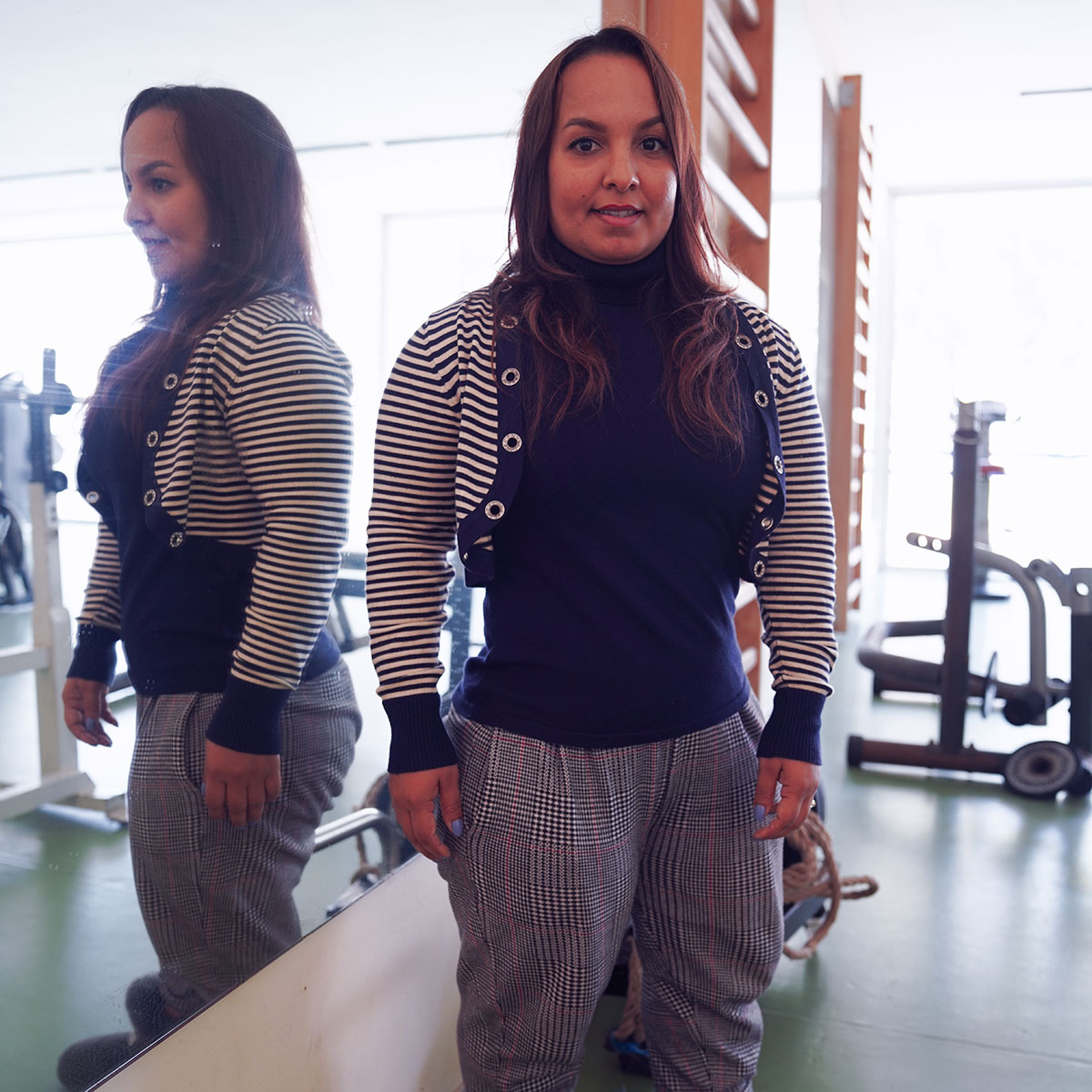
Did you know?
Persons with disabilities have the right to make choices, to live free from violence and discrimination, to access sexual and reproductive health information and services
Immerse Yourself
Immerse yourself in the 360 video by using a headset or a smartphone with the YouTube app. If you are using the app, you can explore your environment by moving your phone around you in a circle to see all angles. If you are on a computer, click and drag anywhere in the video to change the viewing direction.
Immersive Film: What do you want?
Join Anita on a night out with friends in Quito, Ecuador.
Immersive Film: Making a point
Join Haj, a Paralympian tennis player, on the tennis court as he plays a match in Rabat, Morocco.
Immersive Film: A roll in the park
Join Andrea, a wheelchair user in Quito, Ecuador, for a roll through a city park.
Credits
Artistic director and lead photographer: Lauren Anders Brown
Artistic director’s statement: "I am a documentary director and photographer who has captured content in over 40 countries. I traveled to Morocco and Ecuador and met with nine people who allowed me into their lives to capture content in visual and auditory formats. Many of the people are activists, but they are also athletes, employees, academics, entrepreneurs and everyday people. As someone who knows what it is like to live with a disability, I approached this exhibit giving all of the contributors full autonomy to choose how they were photographed, and I welcome you to participate in their journeys in whatever medium works best for you: visual, auditory and/or immersive."
Additional photographer: Mbuto Carlos Machili
Additional photographer's statement: "Born and raised in Maputo, I spent 5 years in South Africa for English studies & university. My focus has been storytelling about children & women for people pushing humanity forward. I've been praised and won a few awards for my work, and I'm grateful for every single one of them. Family time is my favorite time. Recently, I have photographed persons with disabilities in Mozambique and support them through my art to convey personal messages promoting their sexual and reproductive health and rights. I am profoundly honored and inspired by this work. I'm Mbuto Machili, a father & husband, and have been photographing for over 10 years.""
Concept & Production Lead: Ramz Shalbak, UNFPA Communication and Advocacy Specialist
Project Lead: Leyla Sharafi, UNFPA Gender Advisor
Project Coordinator: Nathaly Guzman Figueroa, UNFPA Technical Specialist & Virpi Mesiäislehto, UNFPA Technical Specialist
Coordination Support: UNFPA Ecuador, UNFPA Morocco, UNFPA Mozambique
This exhibit was produced under UNFPA’s WE DECIDE Programme, within the Gender and Human Rights Branch/Technical Division.
Partners: The Spanish Agency for International Development Cooperation (AECID), Ministry of Foreign Affairs Norway, Women Enabled International (WEI), Dysturb, Global Disability Summit 2022
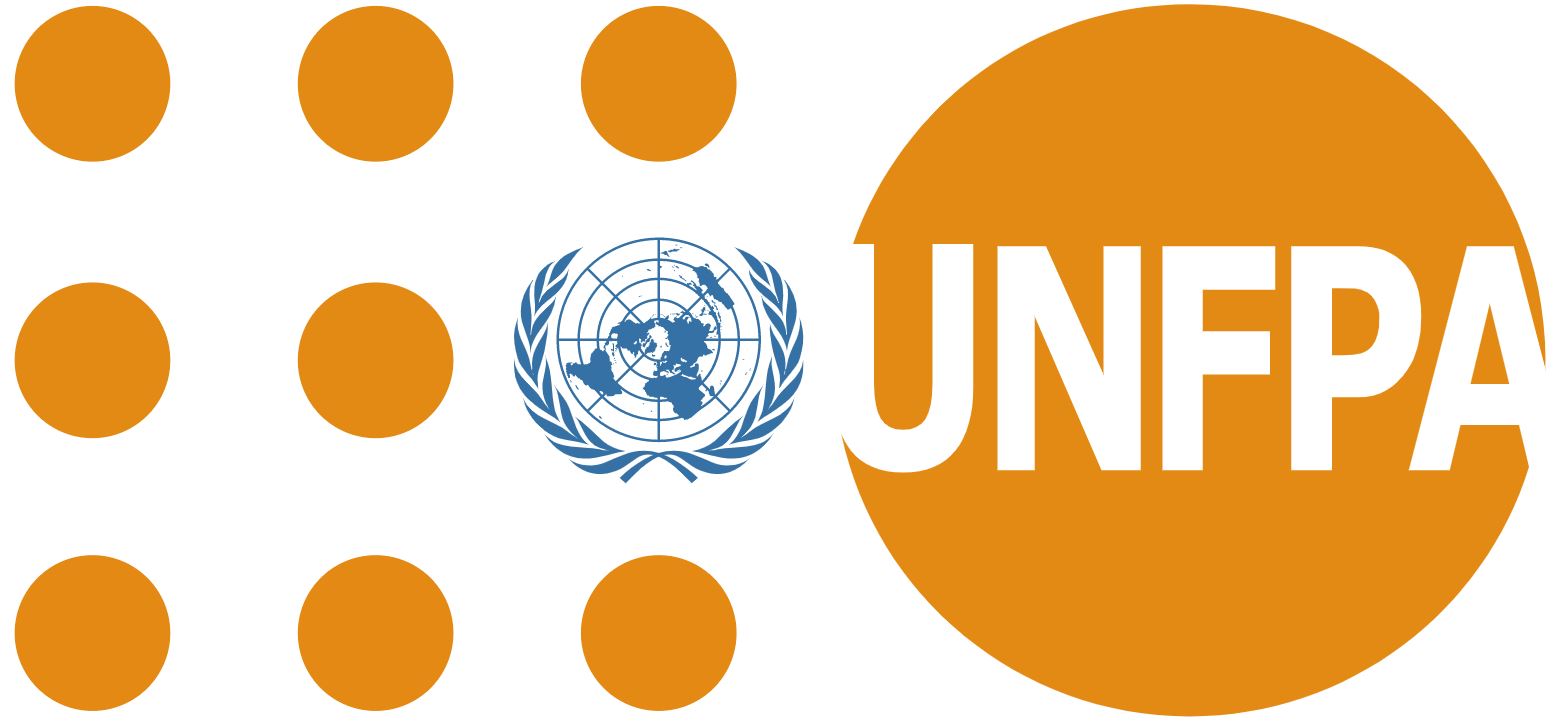
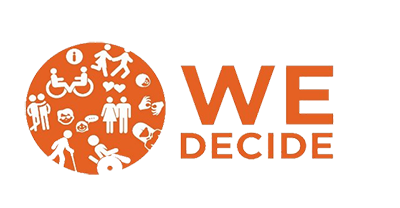
#CommitToChange
This exhibit was launched in April 2022
